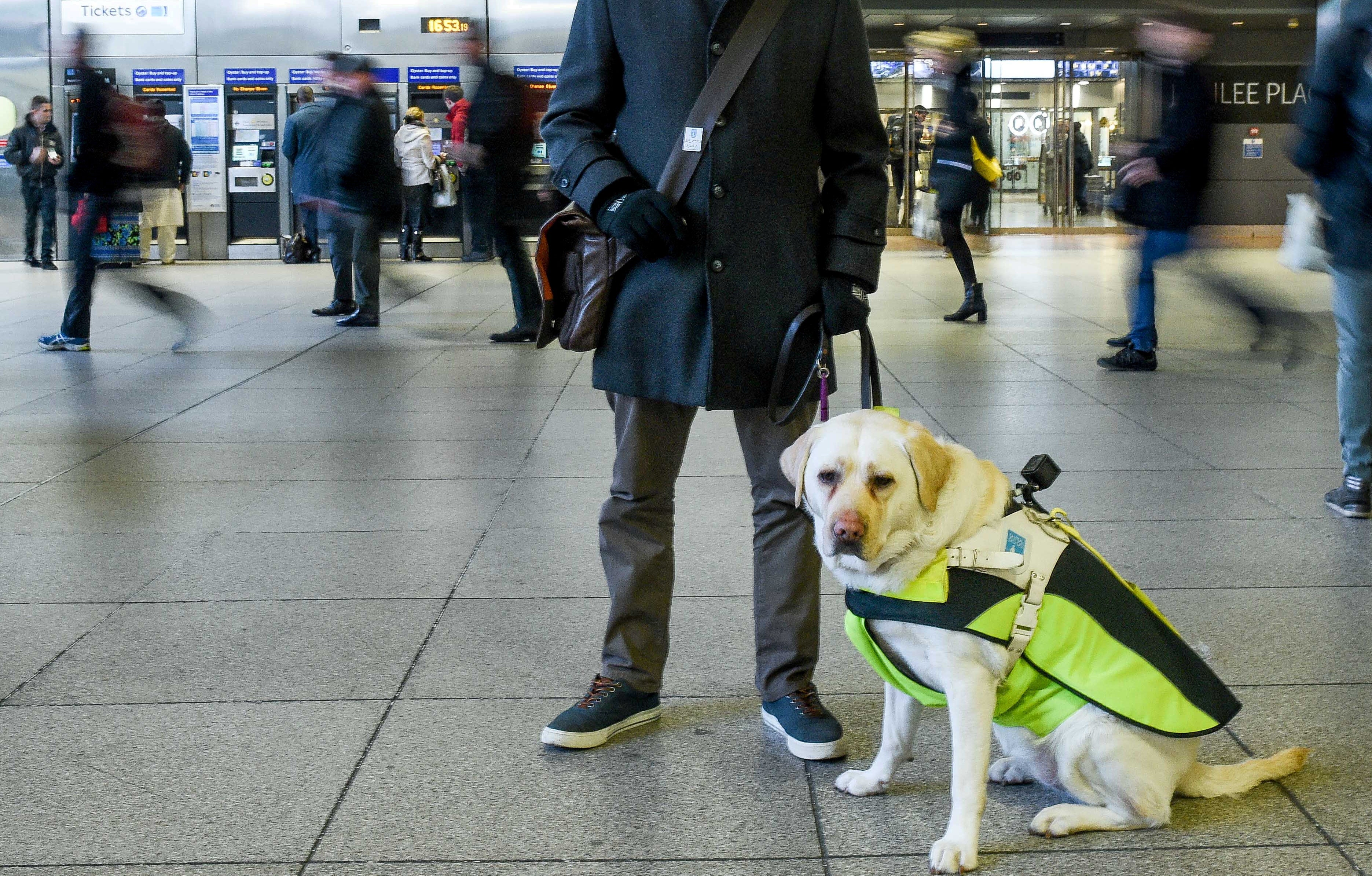Why is the NHS denying disabled people access to A&E?
A blind woman was prevented from seeking medical help for her ill child in a London hospital because of her guide dog. Such situations are far more common that you’d think, writes James Moore


“Here we go again” was my immediate reaction when I first read the story of Dr Amy Kavanagh, a blind woman who was denied access to a London hospital while seeking treatment for her sick child.
Kavanagh was, you see, accompanied by her guide dog. Guide dogs are supposed to be exempt from rules prohibiting animals, for reasons that ought to be glaringly obvious. They were glaringly obvious to people waiting to be seen at the West Middlesex University Hospital and to some of its staff. But not to the security guard who confronted and shouted at Kavanagh at the entrance to A&E.
“Advocating in the face of a threatening, loud security guard is frightening. I didn’t know how he would react, if he would get physical. I was left with a pounding heart and full of adrenaline as I tried to explain to doctors that my baby was sick. It was horrible,” Kavanagh posted on X, formerly Twitter, in the wake of an encounter that sounds horrific.
Remember, Kavanagh had her poorly child with her. This is a parent’s worst nightmare.
You are already sick with worry when you turn up at the door. You know you may be waiting all night. You may face suspicion from medical staff. Having been in that same position myself, I can only imagine what it must have felt like to be confronted by an aggressive, threatening security guard on top of it all.
Then came the aftermath, as Kavanagh related on X.
“A lot of the discussion about my experience at the hospital is claiming it’s not discrimination because I did access care. But what if the next person shouted at by a security guard is a Deaf person with a hearing dog who is then physically blocked because they didn’t hear?”
That Kavanagh had to put up with online insults in addition to the injury she suffered in the Isleworth hospital is still deeply depressing. It is simply appalling – but the situation she was confronted with is not at all uncommon.
I’m writing this just a matter of weeks after highlighting the case of David Rudkin, a fellow type 1 autoimmune diabetic who saw his tenancy fall through as a result of his having an assistance dog to alert him to dangerously low blood sugars. Faced with trying to complete his final year of university online while studying at home, he has had to defer. His mother, Juliet Rudkin, told me they have also been denied access to shops by shouty security guards.
Access for medical assistance dogs is a persistent issue. Research by the charity Guide Dogs has found that 81 per cent of owners have illegally been refused entry to a business or service when out with their dogs. Mind that word: illegally.
Almost half (49 per cent) of guide dog owners said they had changed plans or restricted visits to certain places because they were worried about being challenged or refused entry.
Public polling by the charity over the summer also found more than a third of respondents (38 per cent) thought the government is not doing enough to tackle the issue of access refusal.
I concur. And yet, I didn’t hear this issue mentioned once during any of the party conferences, nor that of disability rights more widely. I’m looking at you in particular, Keir Starmer, because a Labour Party not interested in social justice is not a Labour Party worth voting for.
Beefing up the rights of disabled people to get into places might even be a vote winner, unless decency has completely gone out of fashion? Has it, Sir Keir?
Let’s not forget the NHS while we’re here. Health secretary Steve Barclay has made a big fuss about Equality, Diversity and Inclusion (EDI) coordinators, who are often hired at strikingly high salaries. Critics say this is a smokescreen to distract from the fact that he appears to have no answer to the 7.5 million (and counting) strong waiting list.
Except, what are those EDI people doing with themselves when disabled people have so much difficulty accessing NHS services? How can anyone working within the NHS not know that assistance dogs have a legal right to enter? Who is responsible for training these people?
This isn’t just an issue for people with assistance dogs. I have experienced terrible difficulties trying to use NHS services as a mobility impaired patient.
Every time I raised my own disabilities with one London hospital, I found them turned around and used against me. I kept hearing: “We have to keep you safe.” Except that “keeping me safe” appeared to involve preventing me from having a procedure I needed.
At no stage was any assistance offered. It was an astonishing, maddening, Kafka-esque experience. As with Kavanagh, I ultimately had the procedure. But as she said: what about the next person?
This sort of thing shouldn’t be happening. It begs the question: is there any point to a health service that won’t treat people with health conditions and disabilities because they can’t get past the front door? The founding principle of our publicly funded health service – “free at the point of need” – is a beautiful thing. It is something that I passionately support. It is worth defending.
However, by the same token, an institution that puts Grand National-sized fences in front of disabled people, that attempts to deny us treatment, really does need to take a long, hard look at itself. Free at the point of need unless you’re disabled? What on earth?
Join our commenting forum
Join thought-provoking conversations, follow other Independent readers and see their replies
Comments


Bookmark popover
Removed from bookmarks